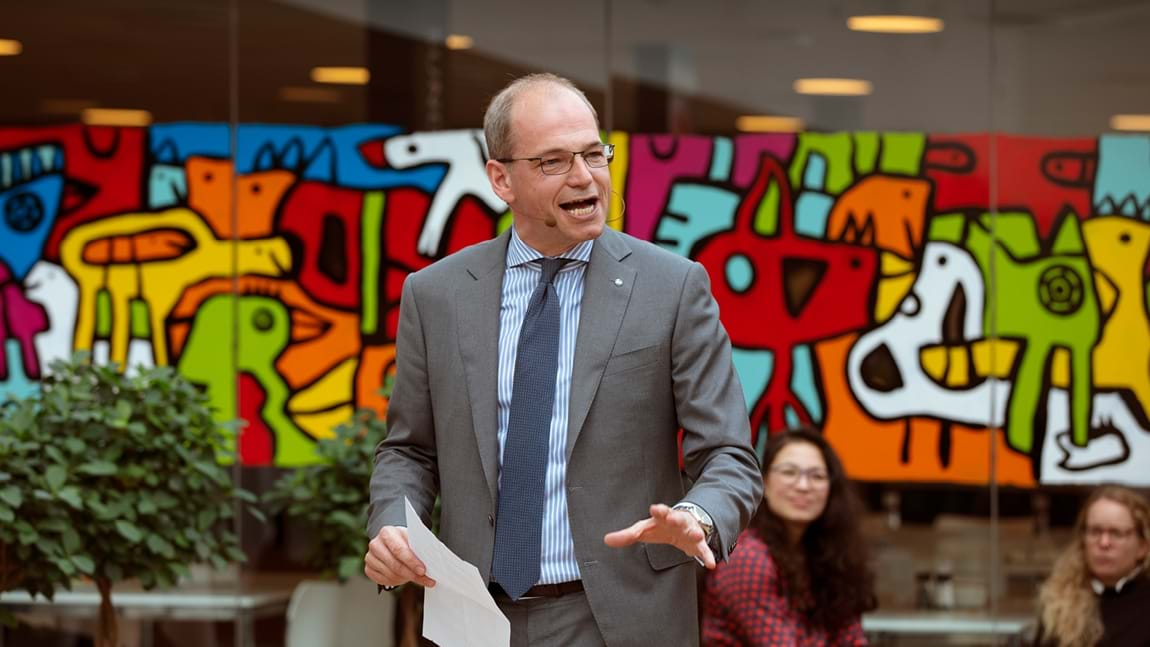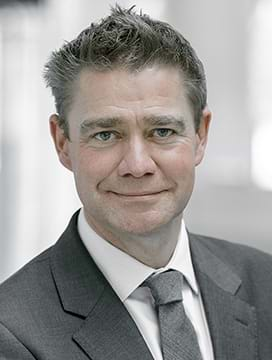Denmark earns millions on ISS’s job programme
In 2018 about 1,000 citizens with various challenges completed an employment programme with ISS. For Denmark, this has significant benefits. Now several will join ISS as regular employees.
In 2018 about 1,000 citizens with various challenges completed an employment programme with ISS. For Denmark, this has significant benefits. Now several will join ISS as regular employees.
People on the flex-job scheme, people with autism, refugees, people with physical impairments and veterans. In short: People with challenges that make holding a job more difficult than for the majority of Danes.
In 2018, 1,000 of them completed an employment programme with services company ISS. The aim of the programme is to help individuals join the labour market to the extent they are able, and every third participant succeeds in this.
“We’re very happy with the results. It’s a victory for us each time we’re able to help someone become part of the community that a workplace constitutes. In our experience, getting started with a meaningful job feels like a victory for the majority of participants,” says CEO Flemming Bendt, ISS Denmark.
It’s fantastic to see a company like ISS taking the lead. Director Jakob Scharff, the Danish Service Industries Federation
Among other things, Flemming Bendt tells the story of one employee who started out suffering from anxiety and outright fear of meeting other people.
“Today, he’s as extroverted as most others and really thriving. It’s a personal victory for him, but he also really appreciates the support we’ve given him, and you’d be hard pressed to find a more loyal employee. What’s more, his success sparks happiness and pride in the team surrounding him,” says Flemming Bendt.
See also: New map: Companies contribute DKK 550 billion to Danish welfare
Do it for the company’s sake
ISS’s initiative also benefits society at large. Using the so-called “Social Calculator”, which allows companies to enter their data and determine the value of their social contribution, ISS has calculated public expenditure savings of DKK 24 million and a tax contribution of DKK 16 million – generating total gains of DKK 40 million for Denmark.
“In our view, helping to solve societal challenges is a natural part of running a business. For more than twenty years, we’ve helped people at the periphery of the labour market gain a foothold or get started. Now we’re intensifying the initiative and linking it to the UN’s SDGs by setting ourselves the target for 2020 of employing 35 per cent of the people we train,” says Flemming Bendt.
Meanwhile, he also makes it clear that it is the interests of the company that the initiative is intended to serve.
“Although there are support schemes for the programme, we know that we won’t earn money on it until we actually manage to get the people we train to function in a regular salaried job,” says the CEO.
See also: New figures: Still fewer Danes on public benefits
Lack of skilled workers
ISS will go a long way to keep from ending up in the same situation as before the financial crisis. Back then, Flemming Bendt explains, the company was forced to turn down assignments because it was lacking the workers to carry them out.
“It was far from the dream scenario for a company, and we’ll do what we can to avoid ending up in that situation again. But we can feel that finding skilled workers, particularly in the technical fields and cooks, is becoming more difficult,” says Flemming Bendt.
ISS isn’t the only company facing this challenge. According to data from the Danish Service Industries Federation, in Q4 of 2018 there were around 226,000 employees in the private service sector. Of these, 36 per cent were skilled workers.
“At the same time, still fewer people with vocational educations are entering the labour market, meaning that recruitment will become increasingly challenging in coming years. That’s why we’re calling on service companies to take on more responsibility for attracting and training young people,” says Director Jakob Scharff, the Danish Service Industries Federation.
He notes that a large portion of skilled workers in the service sector have received their training through apprenticeships and employment in other industries.
“The lack of skilled workers is a shared problem and a shared responsibility, and all of us must help remedy it. It’s therefore fantastic to see a company like ISS taking the lead,” says Jakob Scharff.
See also: New Figures: More Immigrants Finding Jobs in Denmark
FACTS
ISS
Founded in 1901 as a security firm with twenty night watchmen.
Today the world’s largest facility services company with activities in seventy countries, about 480,000 employees and more than 200,000 clients.
In Denmark the group has about 7,500 employees.


